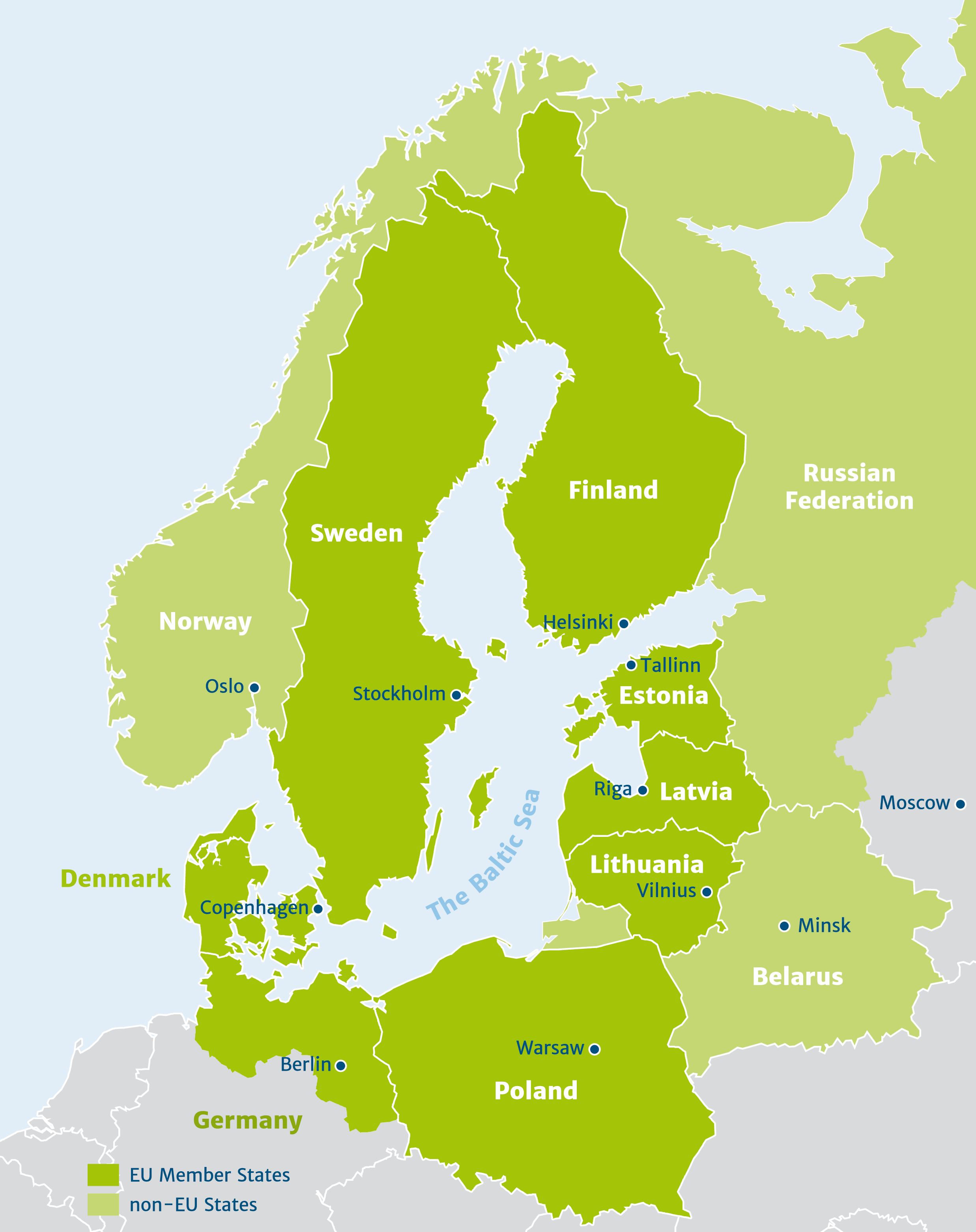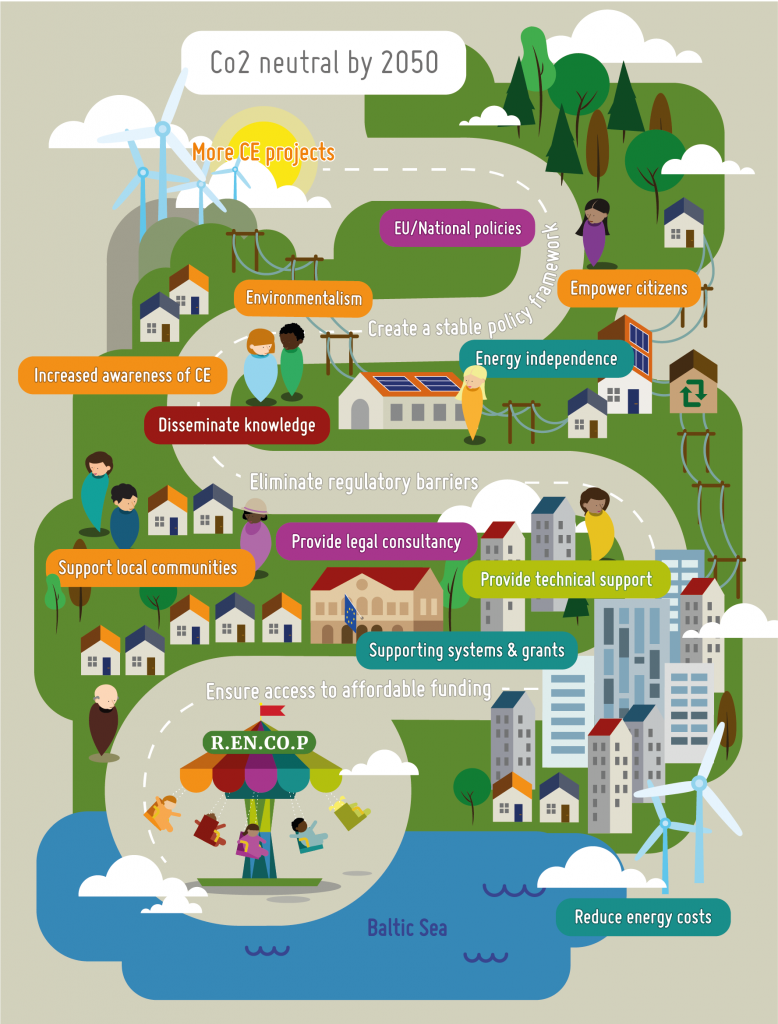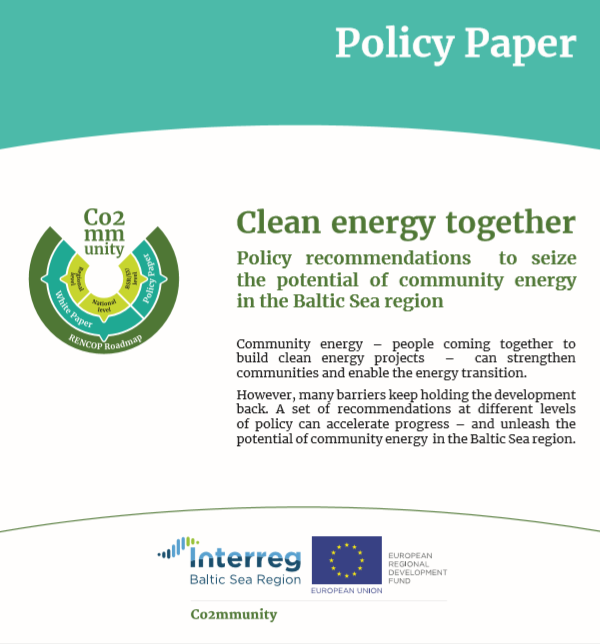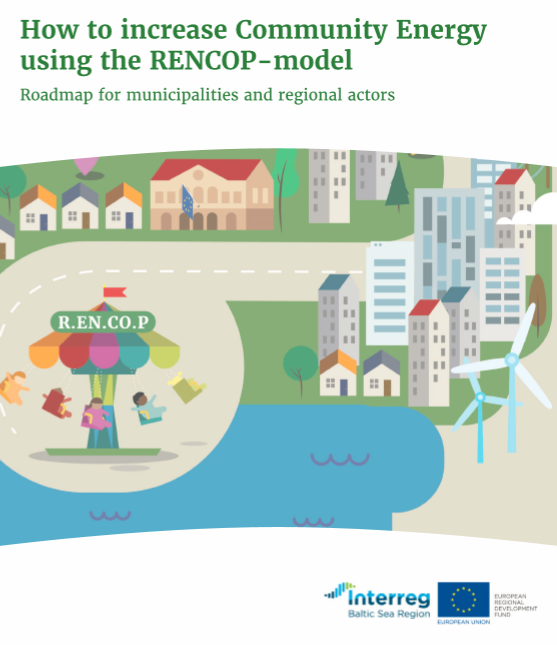Achieving the Promotion of CE in the Baltic Sea Region (BSR)
- Co2mmunity compiled 8 country-specific handbooks on CE development for municipalities and citizen associations addressing their respective lacks, including information about organisational and financing possibilities, technical aspects, and the local/regional CE potential.
- Co2mmunty drafted a White Paper for national and regional stakeholders to support/initiate CE projects. The policy recommendations for national and regional institutions aim at improving the institutional situation for CE development. They include suggestions to improve national and regional policies to support CE projects by, e.g. implementing new funding schemes, enabling new types of collaboration (e.g. energy cooperatives), or embed CE as an important pillar in existing RE policies, thereby fostering the sustainable development in and of communities.
- Co2mmunity drafted a Policy Paper for BSR energy stakeholders/actors. The policy recommendations will address how to facilitate user driven CE solutions on a transnational level.
EU Law on Renewable Energy
As renewable energy technologies have become more accessible, citizens have got more empowered. The ‘Clean Energy for all Europeans Package’ together with the recast Renewable Energy Directive make it easier for citizens to form energy communities, but also to produce, store, and sell their own renewable energy.
Promoting Community Energy (CE)
1. The recent Green Deal of the European Union includes:
- the claim for clean, affordable, and secure energy, setting out the requirements that future energy systems must meet. These requirements can be fulfilled by enabling and facilitating energy communities to take an assured position in societies and to operate actively in the energy market. Therefore, the new EU legislation on CE should effectively be transposed and then properly and intensively implemented in each EU member state.
- the direct and central focus on building renovation and energy efficiency. CE directly supports relevant activities – engage citizens to lower consumption, deploy more efficient infrastructure, collective decision making, supporting communities at large to initiate buildings renovation projects and focus on fighting energy poverty.
2. The Green Deal does not include concrete detailed measures on how to support the democratisation of the energy system, and to assure and encourage communities as well as local municipalities participating in energy production. There is the need to include a more detailed description about the role and expectations of CE in this, as CE is the prime opportunity for communities to take ownership of a fair share of the decentralised and renewable energy production in the near future.
3. The Clean Energy Package (CEP) clearly acknowledges the big potential of CE since it will secure social acceptance of the Energy Transition. It states that in every member, state the barriers to CE should be mapped and consequently removed with determined political action at all levels. Creating a stable policy framework and eliminating regulatory barriers is the key to seize the potential of CE.
8 country-specific handbooks for CE for municipalities and citizen associations
Co2mmunity compiled 8 country-specific handbooks in national language on community energy development for municipalities and citizen associations addressing their respective lacks, including information about organisational and financing possibilities, technical aspects, as well as the local and regional CE potential. They have emerged from regional RENCOP processes, transnational exchange of best practices and experiences, as well as existing BASREC reports and scientific studies.
Please click on the country on the map to get to the respective handbook.

White Paper: policy recommentations to support / initiate CE

This White Paper contains policy recommendations for national-level policy makers in the Baltic Sea Region (BSR) to stimulate, support and promote community energy (CE) projects. Recommendations have been prepared during implementation and as one of the main outputs of the Co2mmunity project. The first part of the document provides a brief and clear overview of the definition of community energy. The second part focuses mainly on the existing policy framework for community energy and lists the main barriers and drivers that are currently affecting the development of community energy in the BSR. The final chapter provides policy recommendations to alleviate existing barriers and to make the policy framework more favourable to community energy projects. These suggestions have been developed over the course of almost three years during the Co2mmunity project.
Policy Paper for energy stakeholders/actors in the BSR
New policy recommendations help countries in the Baltic Sea region seize the potential of community energy.
Community energy can empower people and enable the low-carbon transition. A new set of recommendations can help policy makers in the Baltic Sea region unleash the potential of community energy.
The set of ten policy proposals can help policy makers in removing barriers to community energy. The proposals developed in the Co2mmunity project are based on research literature, practical experiences of projects and a broad consultation with experts and stakeholders in the Baltic Sea region.
Roadmap on how to increase community energy using the RENCOP model
This Roadmap filters down and combines the findings of our project into an informative and detailed report. Transnational cooperation highlights the importance of community energy (CE) as a core pillar of the Green Deal in the Baltic Sea Region. Therefore, the consortium of our project has established an organisational model called RENCOP, where the impact of citizen engagement in renewable energy production and consumption is clearly outlined. In essence, it will guide and encourage organisations to stimulate a higher production of renewable energies through energy-cooperative models and approaches, by setting up structures such as a RENCOP.
Furthermore, the Roadmap illustrates a participatory mobilisation process, with general and country-specific steps, in order to develop CE in regions and municipalities across the BSR and beyond: “The RENCOP model” addresses local and regional actors such as municipal climate managers, energy agencies and other BSR/EU-wide actors interested in promoting RE and CE.

You can download a poster illustrating the Roadmap here.


